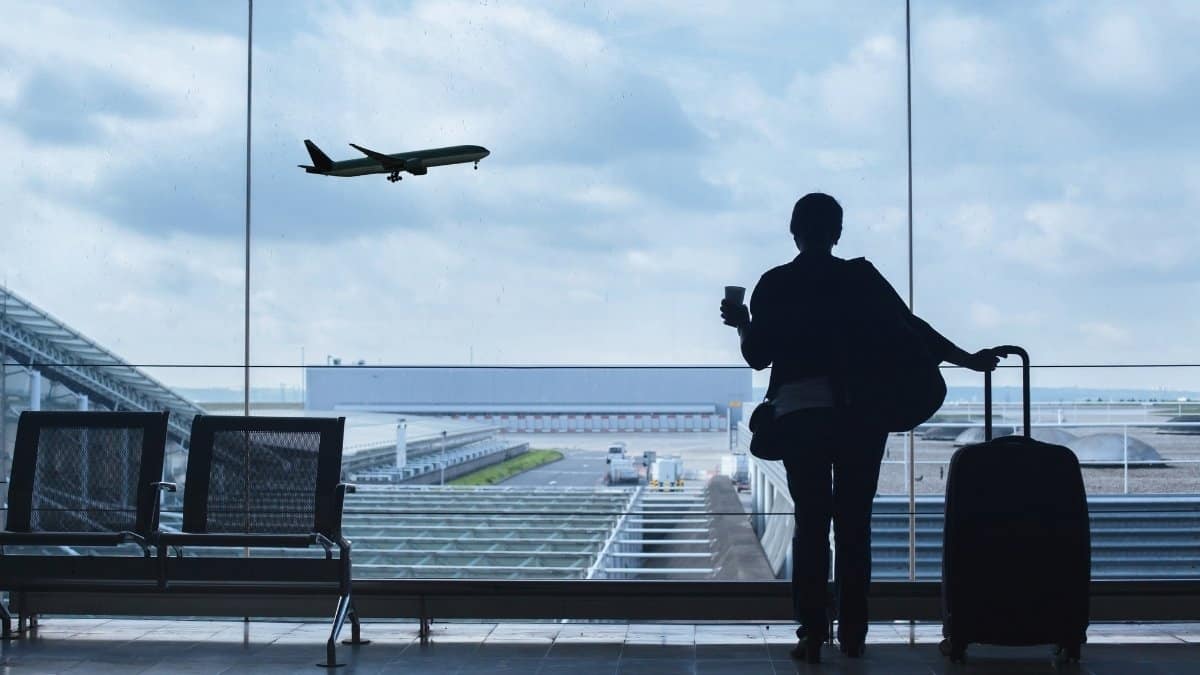Travel expenses can significantly reduce your taxable income if you’re a salaried employee in Canada.
Here’s everything you need to know about claiming travel expenses as tax deductions, including key forms like T2200 and T777, and which expenses are eligible for deductions.
Travel Expenses in the Context of Canadian Taxes
Travel expenses refer to costs that you incur when you travel for work. These can include transportation, meals, accommodation, and other associated costs. In Canada, these expenses are deductible if they are necessary for performing your job duties and if your employer requires you to travel as part of your work.
Common Examples of Travel Expenses
Some typical travel expenses include:
- Transportation: This includes airfare, train, bus, or car rental charges, as well as mileage for using your own car for business travel.
- Meals: When you are away from home overnight on work, you can deduct 50% of the cost of meals and beverages.
- Lodging: Hotel or other accommodations for business-related travel can be deducted.
- Other Expenses: Additional costs like parking, tolls, and internet charges while travelling are also deductible.
However, it’s important to note that commuting from your home to your regular workplace is not deductible under Canadian tax rules. Travel must be related to your job and not your daily work commute.

Eligibility Criteria for Claiming Travel Expenses
Not everyone is eligible to claim travel expenses. To qualify for the deduction, there are a few important criteria that you must meet.
Employment Contract Requirement
To claim travel expenses, your employer must require you to travel as part of your work. This requirement is often specified in your employment contract. If your employer does not have a policy or agreement that mandates you to incur travel costs for work, you won’t be eligible to claim these expenses.
Absence of Reimbursement
You can only claim travel expenses if your employer does not reimburse you for those expenses. If your employer reimburses you for your travel costs, these are considered non-deductible, as they are already covered by the employer.
Form T2200 Requirement
In order to claim travel expenses, you must obtain Form T2200, Declaration of Conditions of Employment, from your employer. This form certifies that your job requires you to incur certain expenses while traveling. Without this form, you cannot claim travel expenses on your tax return.
Form T2200 and Its Role
Form T2200 plays a central role in claiming travel expenses. This form confirms that your employer requires you to incur travel expenses as part of your job duties. It is not submitted with your tax return, but you must keep it with your records in case the Canada Revenue Agency (CRA) asks for it.
Purpose of Form T2200
Form T2200 is a declaration signed by your employer, stating the conditions of your employment that justify your eligibility to claim travel expenses. This includes:
- Confirmation that you are required to travel for work.
- Details about the expenses that you can claim under your employment agreement.
Employer’s Responsibility
Your employer is responsible for completing and signing this form. You must request it from them at the start of tax season or as soon as you know you will be claiming travel expenses.
Employee’s Responsibility
As an employee, you need to keep this form in your records for at least six years, as the CRA may ask for it in case of an audit. You should not submit it with your tax return unless specifically requested by the CRA.
How to Claim Travel Expenses Using Form T777
Once you have your Form T2200, the next step is to claim the eligible travel expenses on Form T777, Statement of Employment Expenses. This form is used to calculate the amount of expenses you can deduct from your taxable income.
Introduction to Form T777
Form T777 allows you to detail all the employment-related expenses you have incurred. It is a comprehensive form that covers not only travel expenses but also other work-related costs, such as office supplies, work clothes, and more.
Filling Out the Form
Enter Your Personal Information: The first section requires your name, address, and tax details.
Claiming Travel Expenses: In the section labeled “Other Employment Expenses,” enter the amount of travel expenses you’ve incurred. This includes transportation, meals, and lodging. You’ll need to break down each expense and provide the necessary receipts and records to back up your claims.
Submitting Your Tax Return: After completing Form T777, submit it with your tax return to the CRA. Keep all receipts and documentation, as they may be required for verification.
Submission Process
Form T777 should be submitted with your regular tax return. However, you do not need to submit Form T2200 unless the CRA specifically asks for it. Retain the form for your records.
Deductible Travel Expenses: What You Can Claim
Now that you know the basics of claiming travel expenses, let’s look at the specific expenses that are eligible for deductions.
Transportation Costs
Transportation costs are one of the most common and significant travel expenses. Whether you travel by plane, train, bus, or car, the cost is deductible as long as the travel is for work purposes. You can claim:
- Airfare or train tickets for travel to a work-related event or business trip.
- Car mileage if you’re using your personal vehicle for business travel. Keep track of the kilometers driven and the purpose of the trip.
- Rental cars used for business trips.
Meal and Beverage Expenses
Hotel or other accommodation expenses are deductible when you are away from home overnight for work. This can include hotel stays, Airbnb rentals, or other types of accommodations. The full cost of lodging is deductible, provided the stay was necessary for work.
Lodging Expenses
Hotel or other accommodation expenses are deductible when you are away from home overnight for work. This can include hotel stays, Airbnb rentals, or other types of accommodations. The full cost of lodging is deductible, provided the stay was necessary for work.
Other Eligible Expenses
Other expenses related to your travel can also be deducted, including:
- Parking fees: Paid parking for business trips.
- Tolls: Tolls incurred while traveling for business purposes.
- Internet charges: Business-related internet usage while traveling.
- Baggage fees: Fees for checked luggage on business trips.
Special Considerations for Transportation Employees
If you work in the transportation industry, such as being an airline or truck driver, you may be entitled to additional deductions beyond the standard travel expenses.

Additional Deductions for Transportation Employees
Transportation employees often incur extra costs that go beyond typical travel expenses, such as:
- Meals and lodging: These can be claimed at a higher rate, depending on the nature of the travel.
- Other industry-specific expenses: For example, certain specialized equipment or uniforms may also be deductible.
Using Form TL2 for Transportation Employees
Transportation employees who travel frequently for work may also need to use Form TL2, Claim for Meals and Lodging Expenses. This form is specifically for employees who work in industries such as trucking, aviation, and other forms of transport.
Common Mistakes to Avoid When Claiming Travel Expenses
Claiming travel expenses can be straightforward, but there are common mistakes that many employees make. These mistakes can lead to missed deductions or complications with the CRA.
Incomplete Documentation
One of the biggest mistakes employees make is failing to keep detailed records. Without receipts and clear records, the CRA may deny your claim. Be sure to track every expense and keep all supporting documents, such as receipts for meals, lodging, and transportation.
Incorrect Form Usage
Using the wrong form can lead to confusion and delays in processing your tax return. Always ensure that you are using Form T2200 to confirm your eligibility and Form T777 to claim your expenses.
Misunderstanding Eligibility
Many employees mistakenly believe they can claim commuting expenses or other non-deductible costs. It’s important to only claim expenses that are directly related to your work travel, not your daily commute.
Maximizing Your Tax Savings
To ensure you get the most out of your travel expense claims, consider the following tips:
Record Keeping Tips
Maintain detailed records of every trip you take for work. This includes keeping:
- Receipts for meals, lodging, and transportation.
- Mileage logs if you’re claiming car expenses.
- Travel itineraries for proof of business-related travel.
Consulting a Tax Professional
If you’re unsure about which expenses you can claim or need assistance with completing forms, it may be helpful to consult a tax professional. They can help ensure that your claims are accurate and compliant with Canadian tax laws.
Utilizing Tax Software
Many tax preparation software programs now come with tools that help you maximize your deductions. These tools can help you stay organized and ensure that you’re claiming all the expenses you’re eligible for.
Conclusion
By following the proper procedures, including obtaining Form T2200, completing Form T777, and keeping detailed records, you can ensure that your tax return is as accurate and beneficial as possible. If you’re uncertain or exploring countries with different tax rules, consider consulting a tax professional to ensure you’re getting the most out of your deductions.
FAQs
What kind of travel expenses are tax deductible?
Travel expenses that are necessary for your job and not reimbursed by your employer may be deductible. These include transportation (e.g., airfare, mileage), lodging (e.g., hotels or rentals), meals (typically 50% deductible), and other work-related costs such as parking, tolls, and internet fees during travel.
What is the maximum you can claim on travel expenses?
There is no fixed maximum amount. You can claim the full amount of eligible expenses as long as they are reasonable, directly related to your employment duties, and properly documented. For meals and beverages, only 50% of the cost is generally deductible.
Are airplane expenses tax deductible?
Yes, airplane expenses are deductible if the travel was necessary for your job and your employer did not reimburse you. Be sure to retain flight receipts and proof of the business purpose of the trip.
What is a travel tax credit?
Canada offers the Canada Worker’s Travel Allowance (CWTA) for eligible workers in designated regions. However, typical employment travel deductions are claimed as employment expenses, not credits. These deductions reduce your taxable income rather than offering a direct tax credit.



